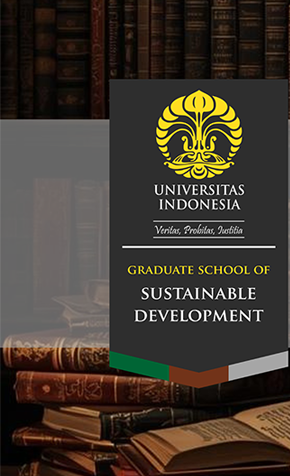Abstract
Tension between privacy and security is nothing new, however due to the development of information and communication technology use as well as more intensive efforts of terrorism eradication have affected to the increasing level of the conflict. The need for national security is often similar to the situation of state of emergency, which enables the state to conduct several limitations to the implementation of right to privacy. Many states use the said justification and further position the element of national security to be in the superior position compared to the protection of civil liberties, including right to privacy. As a result, the act of limitation to the implementation of right to privacy in the context of terrorism eradication is deemed as ordinary and justified by law. In addition to that, to legitimize such policy, the state often sustains the state of emergency situation with no clear time limit. Departing from such situation, there needs to build an equilibrium between security and protection of the right to privacy by adapting to the continually changing reality. Today's technology development enables the state to track the movement of each person and create detailed and comprehensive profile of its citizen's life, so that the limitation of privacy also changes. However, even with the reason of terrorism eradication, the actions executed by the state must refer to several specific principles to ensure the protection of rights and fundamental freedoms.
Bahasa Abstract
Konflik atau ketegangan antara privasi dan keamanan sebenarnya bukanlah hal yang baru, akan tetapi makin berkembangnya teknologi informasi dan komunikasi, serta makin intensnya kerja-kerja pemberantasan terorisme, telah berdampak pada naiknya level konflik tersebut. Kebutuhan keamanan nasional dalam pemberantasan terorisme sering kali dipersamakan dengan darurat nasional, yang memungkinkan negara untuk melakukan sejumlah pembatasan terhadap pelaksanaan hak atas privasi. Banyak negara dengan menggunakan alasan tersebut kemudian menempatkan elemen keamanan nasional berada pada posisi yang lebih superior dibandingkan perlindungan kebebasan sipil, termasuk di dalamnya hak atas privasi. Akibatnya tindakan pembatasan terhadap pelaksanaan hak atas privasi, dalam konteks pemberantasan terorisme dianggap sebagai sesuatu hal yang lumrah dan dibenarkan oleh hukum. Selain itu, untuk melegitimasi kebijakan tersebut, negara juga kerap memermanenkan keadaan darurat, tanpa batas waktu yang jelas. Berangkat dari situasi tersebut perlu dibangun sistem keseimbangan antara keamanan dan perlindungan hak atas privasi, dengan menyesuaikan pada realitas yang terus berubah. Perkembangan teknologi hari ini memungkinkan negara untuk melacak pergerakan setiap orang, dan membuat profil terperinci dan komprehensif dari kehidupan warganya, sehingga batasan privasinya pun berubah. Namun demikian, meski untuk alasan pemberantasan terorisme sekali pun tindakan-tindakan pembatasan yang dilakukan negara, tetap harus mengacu pada sejumlah prinsip tertentu, untuk tetap memastikan adanya perlindungan terhadap hak dan kebebasan dasar.
References
Agus Salim. (2006). Teori dan Paradigma Penelitian Sosial. Yogyakarta: Tiara Wacana
Alexandra Rengel. (2013). Privacy in the 21st Century. Leiden: Koninklijke Brill NV.
Andrew Legg. (2012). The Margin of Appreciation in International Human Rights Law: Deference and Proportionality. Oxford: Oxford University Press.
Assaf Moghadam. (2006). The Roots of Terrorism. New York: Chelsea House Publisher.
Axel Dreher, Martin Gassebner, and Lars-Hinrich Siemers. (2010). Does terrorism threaten human rights? Evidence from panel data. The Journal of Law and Economics, Volume 53.
Brigitte L. Nacos. (2019). Terrorism and Counterterrorism (Sixth Ed.). New York: Routledge.
David Lowe. (2016). Surveillance and International Terrorism Intelligence Exchange: Balancing the Interests of National Security and Individual Liberty. Terrorism and Political Violence, Vol. 28 No. 4.
Julie C. Inness. (1992). Privacy, Intimacy, and Isolation. New York: Oxford University Press.
Manfred Nowak dan Anne Charbord (Ed.). (2018). Using Human Rights to Counter Terrorism. Cheltenham: Edward Elgar Publishing.
Manfred Nowak. (2005). U.N. Covenant on Civil and Political Rights CCPR Commentary, 2nd rev. Ed. Kehl: N.P. Engel Verlag.
Md. Abu Bakar Siddique dan Sharmin Akter. (2016). Right to Privacy and Counterterrorism in the Digital Age: A Critical Appraisal for Bangladesh, OSR Journal of Humanities and Social Science Volume 21, Issue 7, Ver. VIII.
Paul Rosenzweig. (2010). Privacy and counterterrorism: the pervasiveness of data. Case Western Reserve Journal of International Law, Vol. 42, Issue 3.
Richard Smith. (2011). The Margin of Appreciation and Human Rights Protection in the “War on Terror‟: Have the Rules Changed before the European Court of Human Rights? Essex Human Rights Review 124.
Sotirios Sarantakos. (2005). Social Research. Queensland: Macmillan Education Australia Pty, Ltd.
Stefan Sottiaux. (2008). Terrorism and the Limitation of Rights the ECHR and the US Constitution. Oregon: Hart Publishing.
Tracy Albin. (2017). The Battle of Civil Liberties and the Vulnerability of Terrorism: How do we Avoid an Orwellian Society. Perth International Law Journal 12 No. 2.
Wayne N. Renke. (2016). Who Controls the Past Now Controls the Future: Counterterrorism, Data Mining and Privacy. Alberta Law Review, Volume 43(3).
Recommended Citation
Djafar, Wahyudi and Syauqillah, Muhamad
(2022)
"DEVELOPING AN EQUILIBRIUM OF PROTECTION OF THE RIGHT TO PRIVACY AND NATIONAL SECURITY IN TERRORISM ERADICATION IN INDONESIA,"
Journal of Terrorism Studies: Vol. 4:
No.
2, Article 5.
DOI: 10.7454/jts.v4i2.1053
Available at:
https://scholarhub.ui.ac.id/jts/vol4/iss2/5

